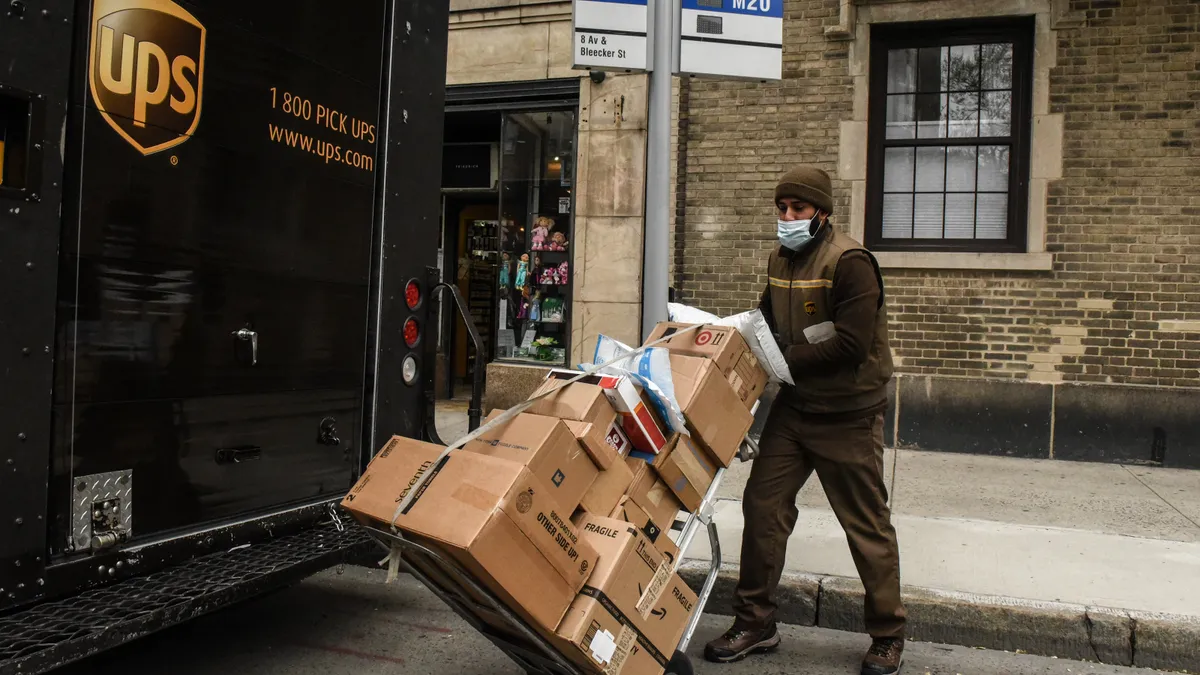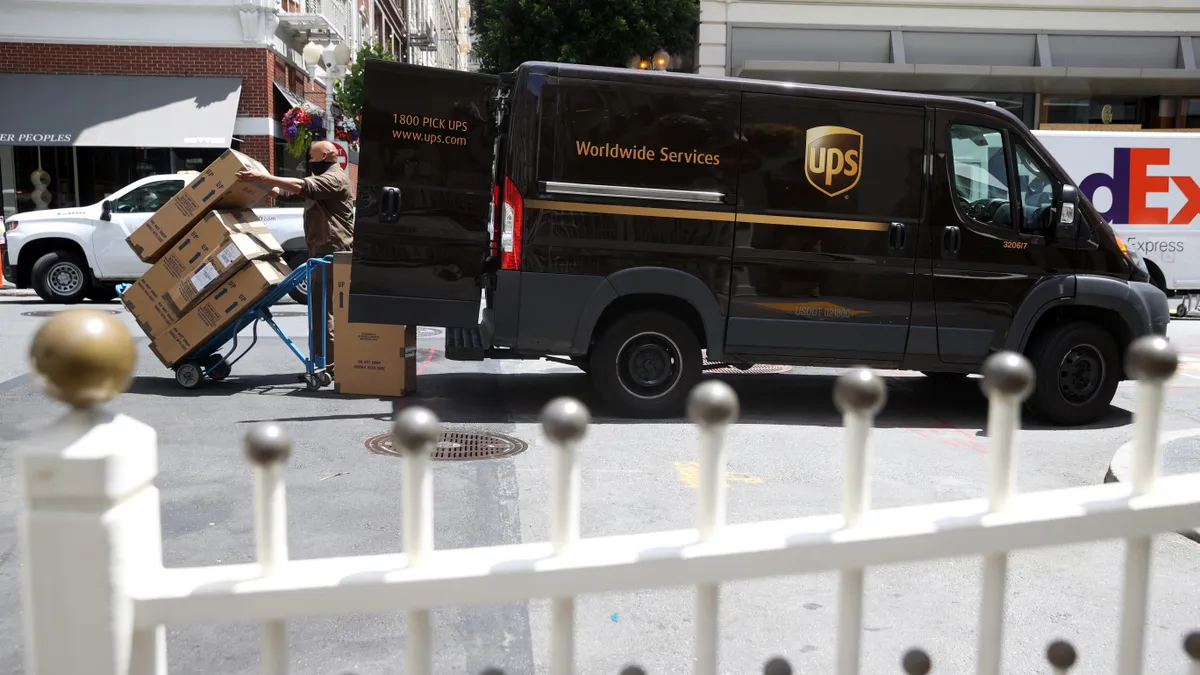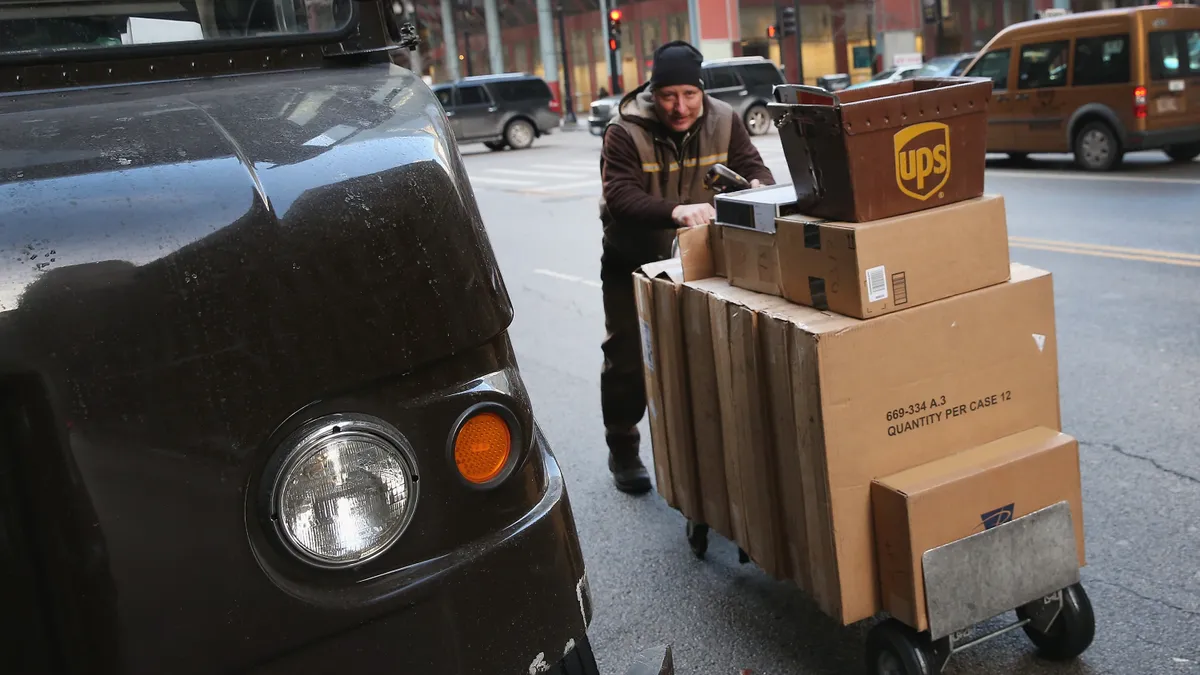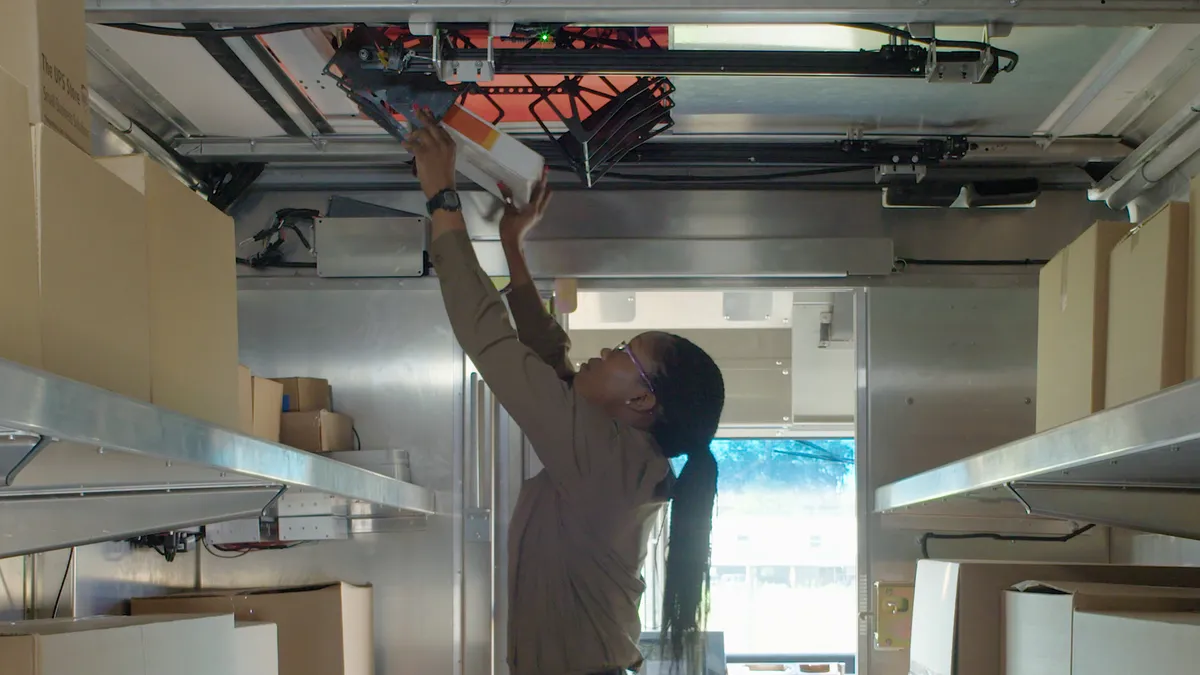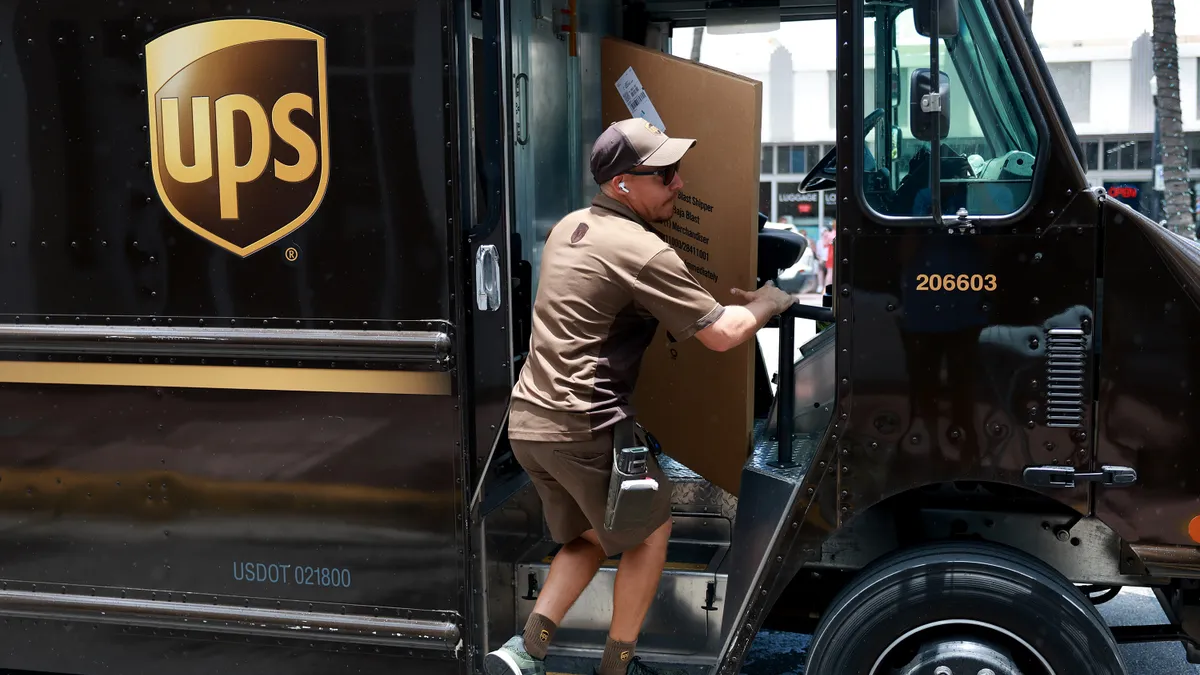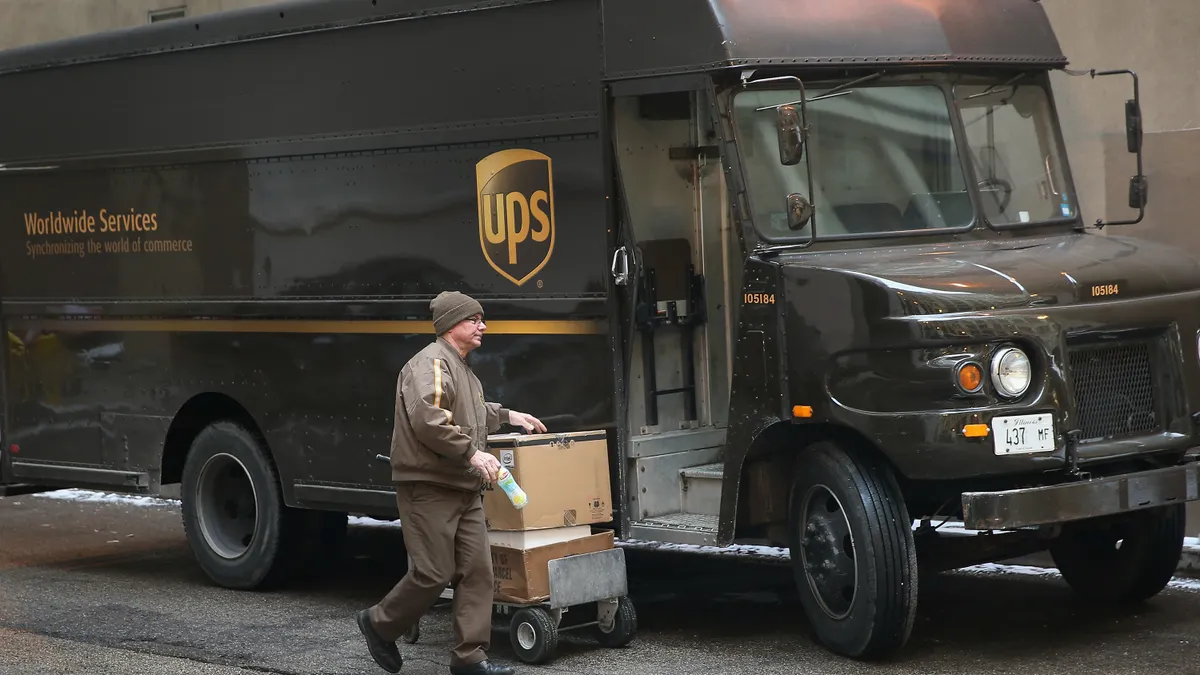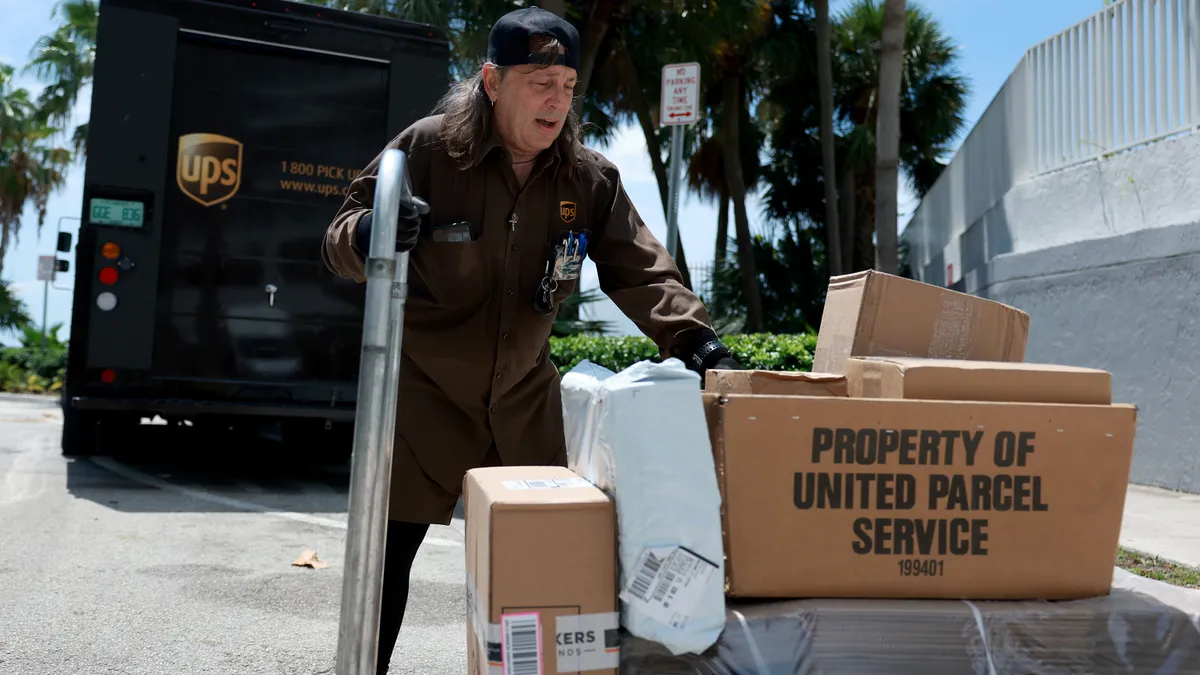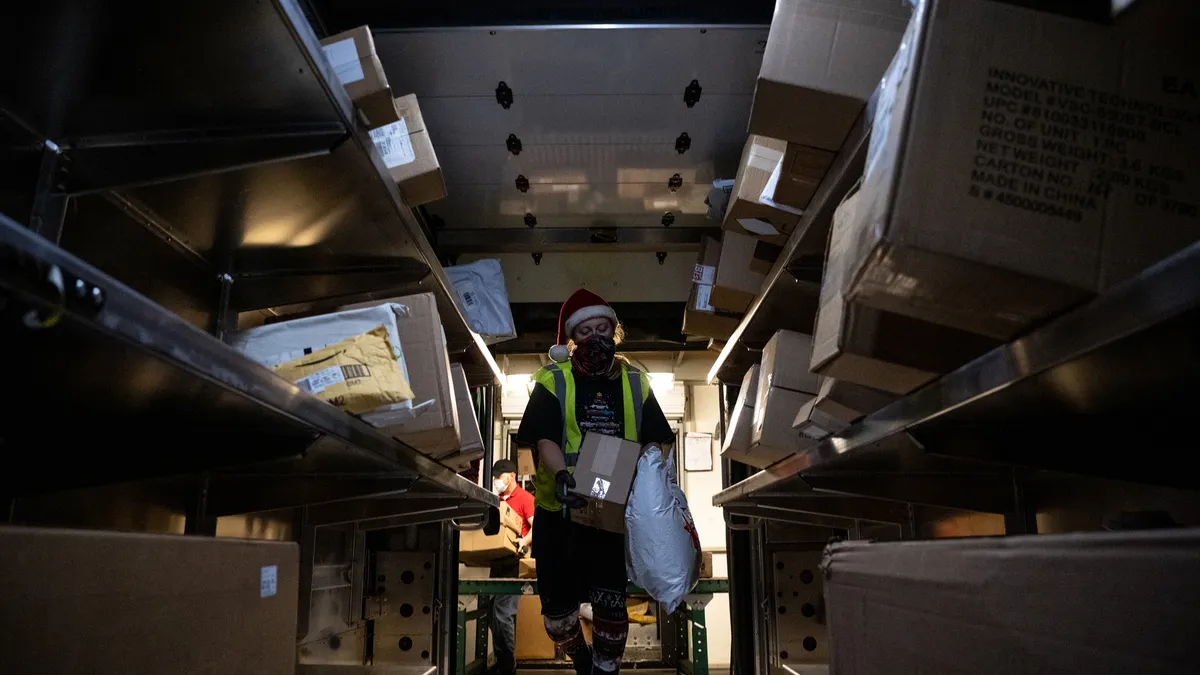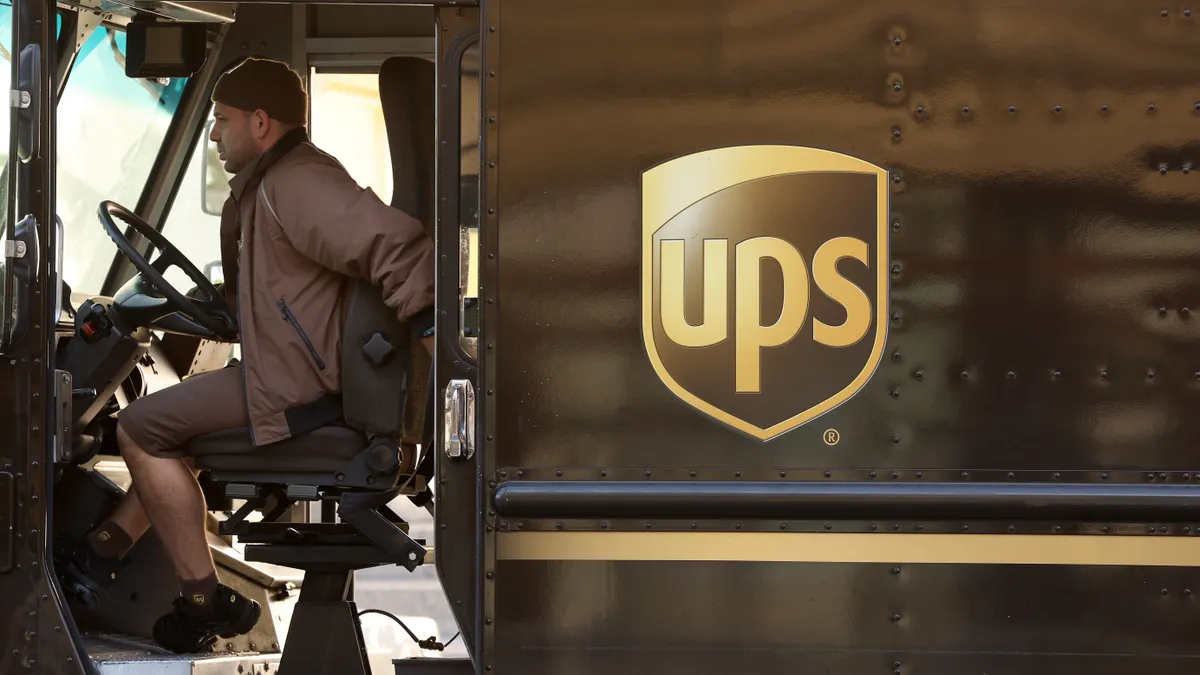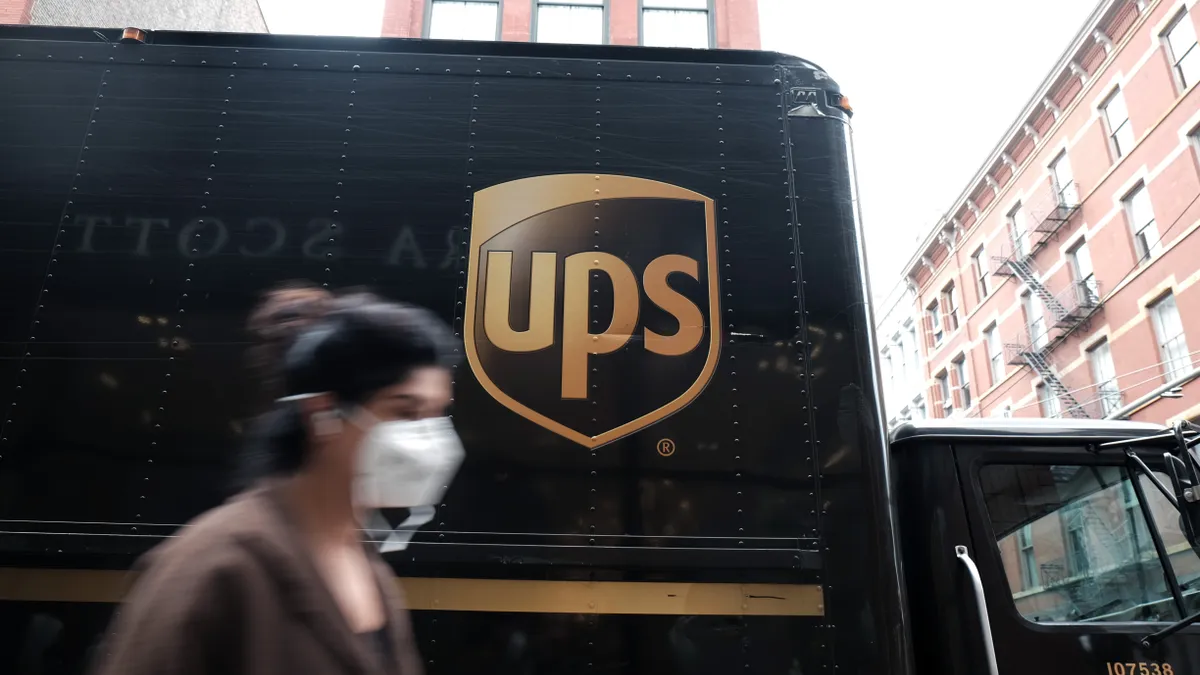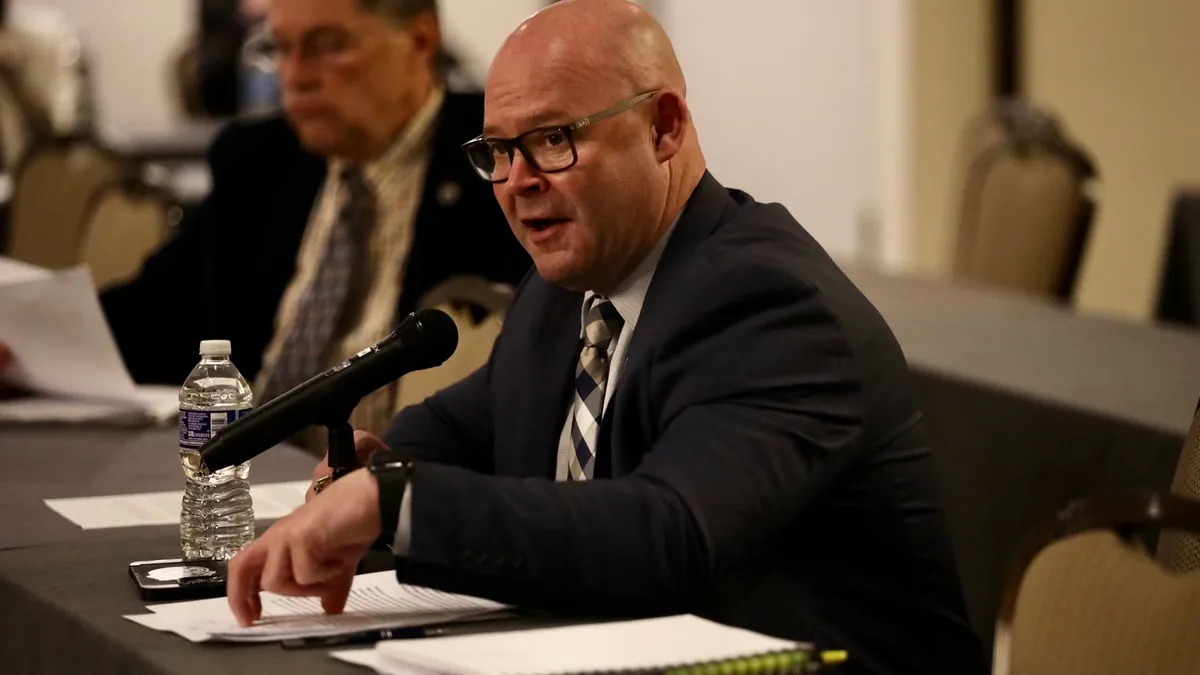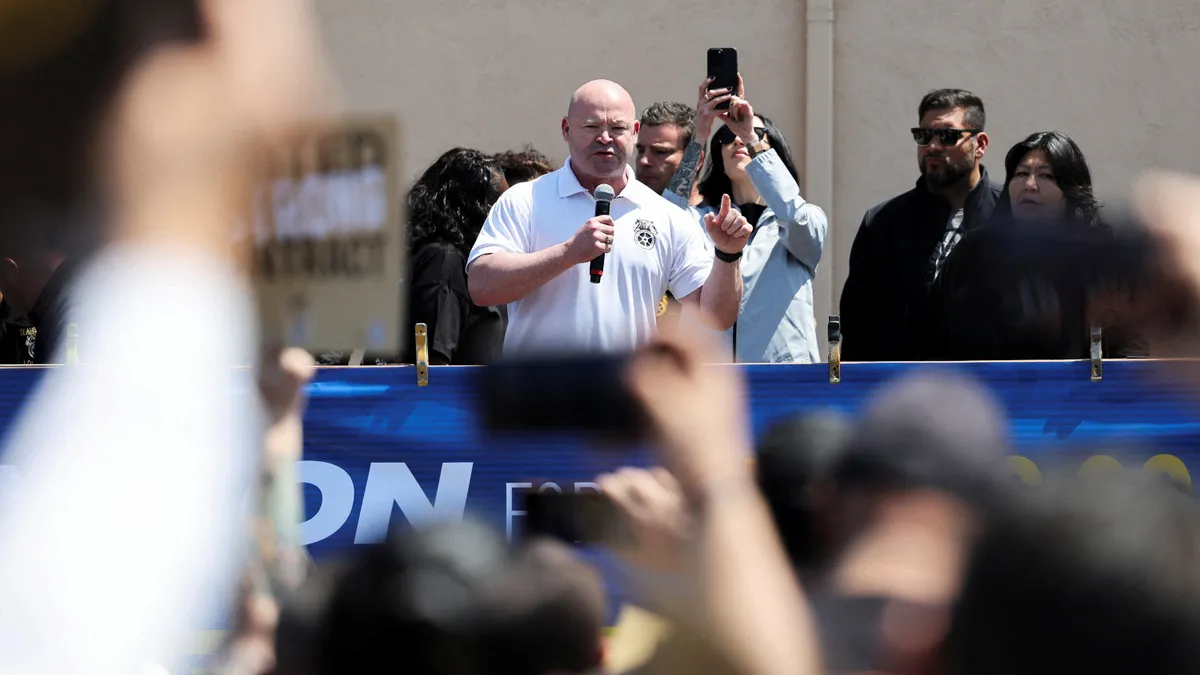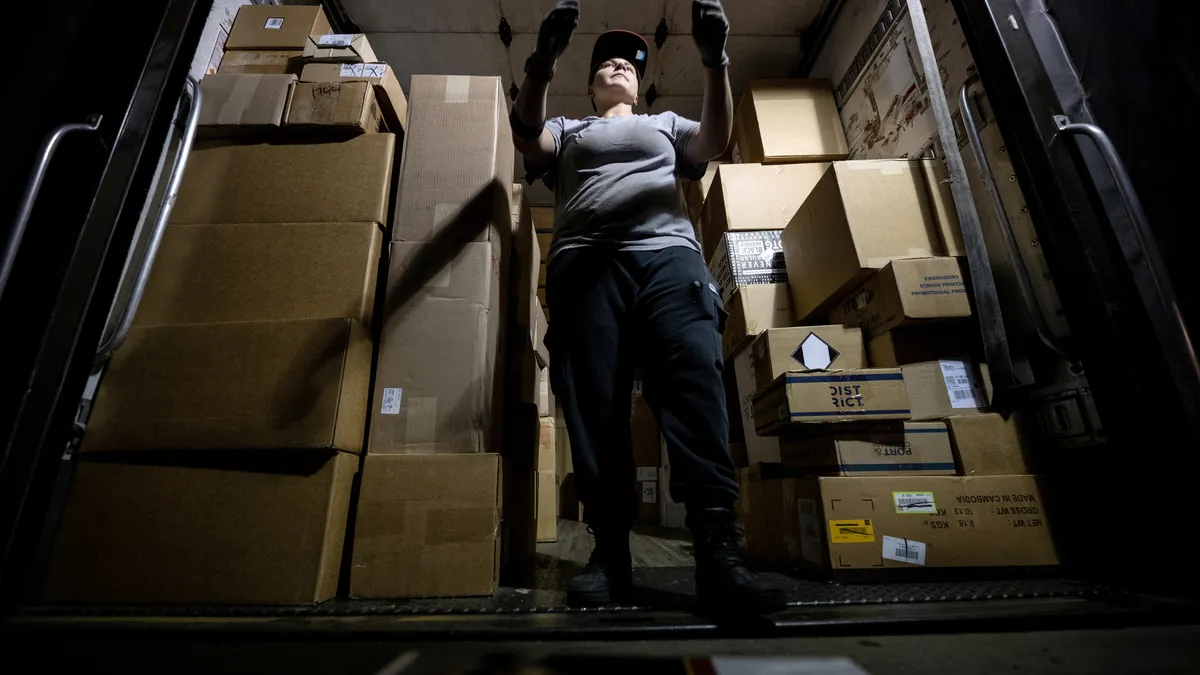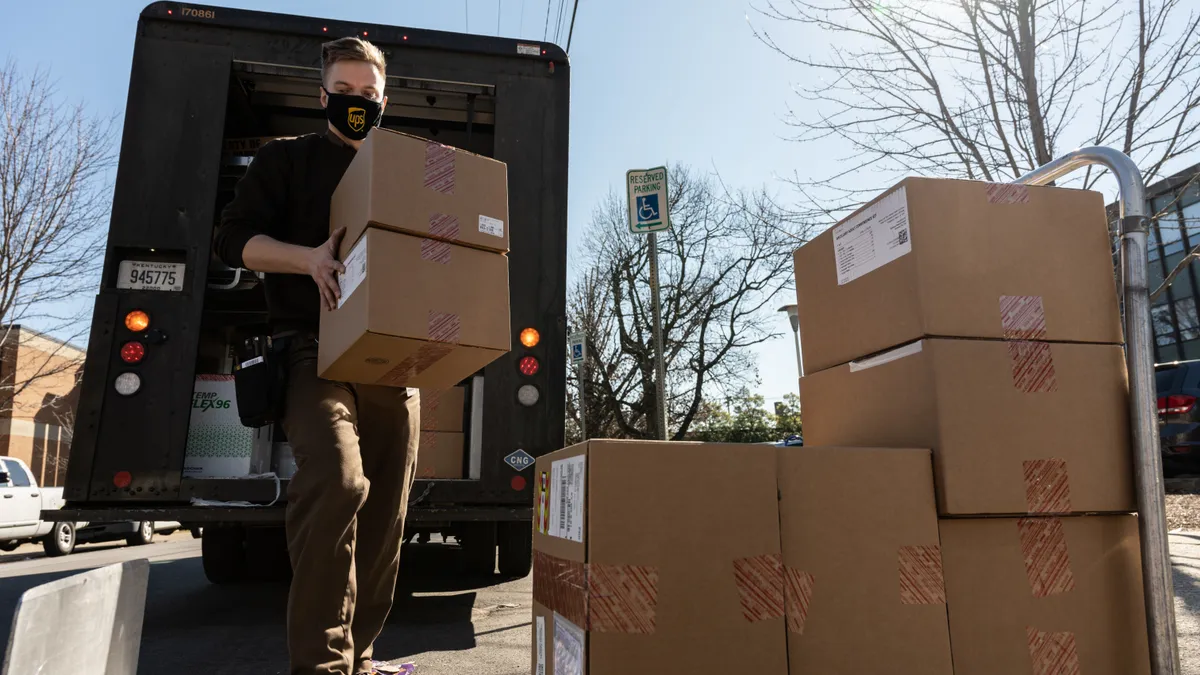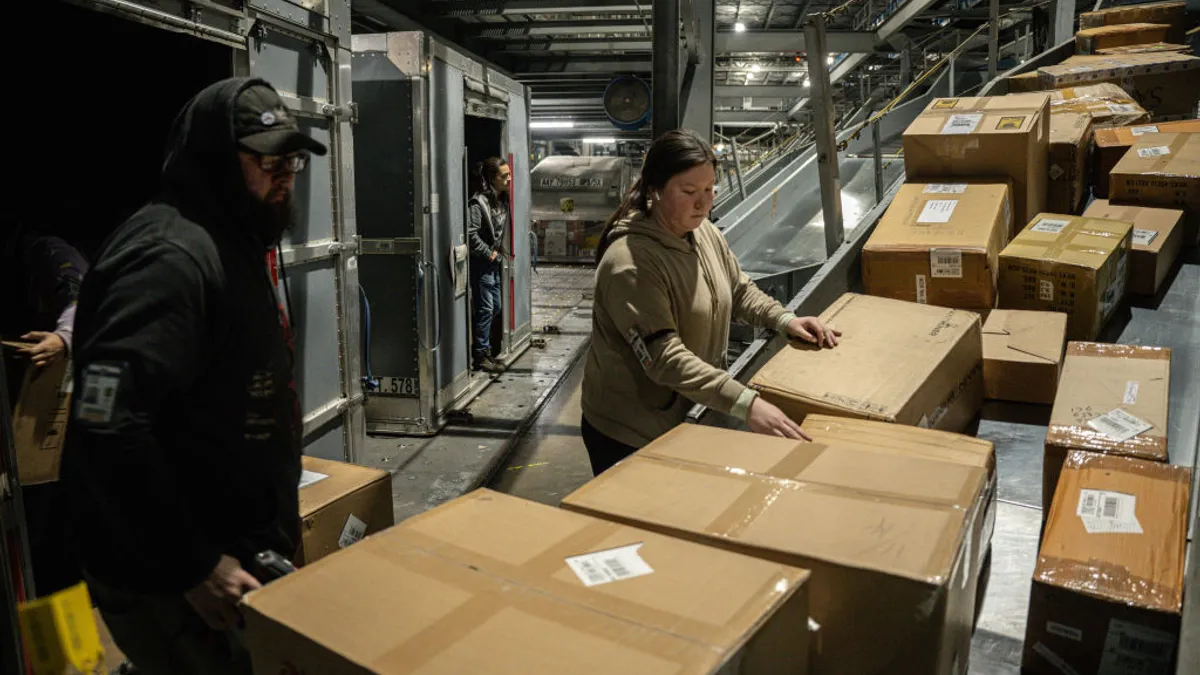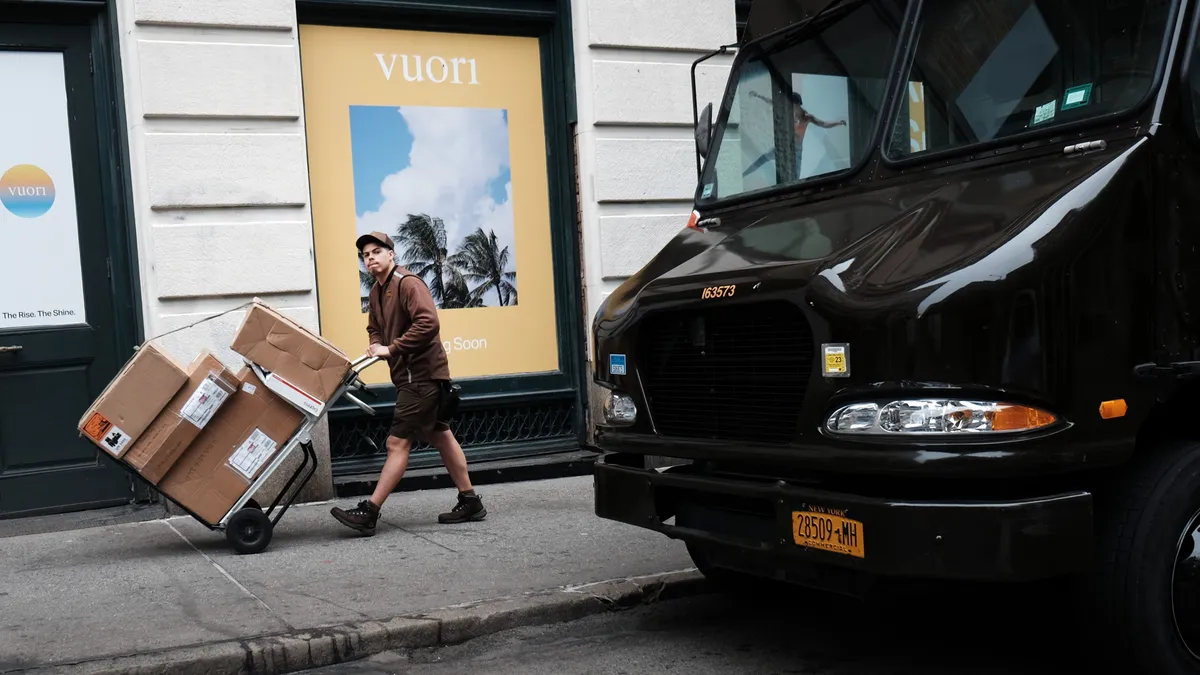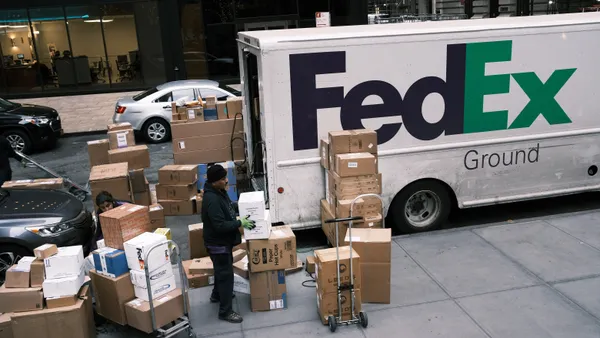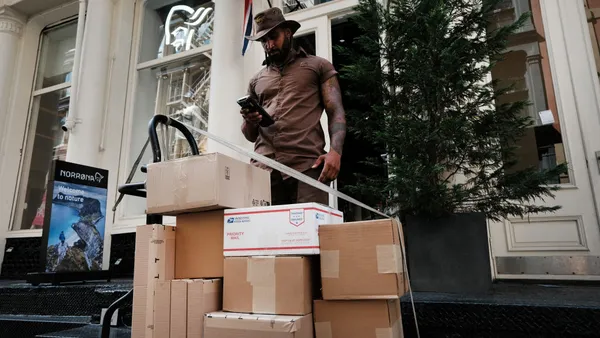UPS and the International Brotherhood of Teamsters have reached a tentative deal to use company drivers for half of SurePost packages, Teamsters General President Sean O'Brien said during a Wednesday webinar updating union members on negotiations.
If implemented, the recently reached deal would also reduce the size of packages eligible for delivery by the agency and increase the percentage of SurePost packages redirected to UPS drivers from 42% to 50%.
UPS frequently uses the U.S. Postal Service for its SurePost, which delivers non-urgent and lightweight residential shipments. Through the years, the Teamsters have pushed to reduce the company's reliance on the Postal Service and put more SurePost packages on UPS vehicles.
"These two gains will put millions of packages back onto our package cars," O'Brien said.
The changes are among several O'Brien outlined in the webinar for union members. Twenty-four tentative agreements on various pieces in the national contract have been reached so far in 11 days of bargaining, O'Brien said.
"That averages out more than two tentative agreements per day, which is a very, very aggressive schedule we're keeping, and we're making the company work off of our proposals," O'Brien said.
Any new contract language is subject to ratification alongside the next national contract, which is currently being negotiated. UPS spokesperson Glenn Zaccara said in an email Thursday that the company is "pleased that we are making steady progress with the Teamsters on a wide array of topics."
Larger union influence in tech changes
The two sides have also reached a tentative agreement to prevent the introduction of certain technology in the company's network without negotiating with the union first, O'Brien said.
Drones, driverless vehicles and vehicle platooning are among the affected technologies O'Brien listed. The deal would require UPS to meet with the Teamsters at least 45 days before any proposed change in technology, he added.
"Prior to this, there was very loose language, which didn't give us the ability to sit down and negotiate and the company could just implement," O'Brien said. "We have a resolution process."
The current national contract between UPS and the Teamsters, which expires July 31, defines technological change as any major equipment or materials changes that significantly affects union workers or diminishes their ranks. UPS must provide notice on any changes prior to implementation.
O'Brien said the goal of the new language is to protect and grow Teamsters jobs as a result of new technologies, while making certain working conditions are protected, preserved and improved.
Strike authorization vote looms
While progress is being made, negotiations still have a way to go. UPS and the union must reach an agreement regarding wages, and the Teamsters want "substantial raises" across the board, Teamsters General Secretary-Treasurer Fred Zuckerman said in the webinar.
"We need to drive the wage rates up," Zuckerman said. "We need to increase pensions."
To ramp up the pressure on UPS, the Teamsters are holding a strike authorization vote starting this week, with results to be announced June 16. The union is encouraging members to vote in favor of a strike authorization, as "it will get UPS to move" on negotiations, Zuckerman said.
UPS said in an emailed statement Thursday that "members will overwhelmingly approve" the strike authorization, adding that it's a routine part of the bargaining process.
"We respect this step in the process and remain committed to making progress at the bargaining table," the company said.



